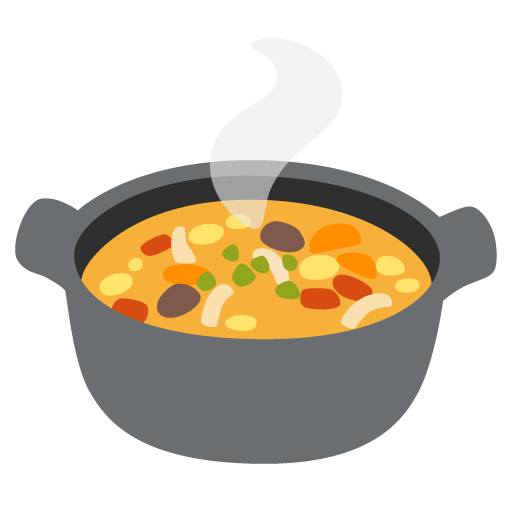- cross-posted to:
- cooking@lemmy.world
- food@beehaw.org
- cross-posted to:
- cooking@lemmy.world
- food@beehaw.org
A few years ago, while we were cooking, my SO showed me a blog post about common spices and their substitutions. I thought it’d be cool to use that to make a chart we could hang on the wall. It turned into a fun light research project, then a fun art project.
I started reading various blogs and realized that while many covered the same core spices, there were a lot of others that only one blog or another mentioned. So I started gathering them all up. As I read about them on Wikipedia I’d stumble into their histories, and scope creep hit. I decided to add a column for interesting facts about each. (While gathering those, I was kind of struck at the disparity between them - some spices, have centuries of warfare, murder, and espionage wrapped around them, while others are so common or easy to grow that nobody seems to have stabbed anyone at all for it.)
I built it first as a spreadsheet in Google sheets while I was researching, pasted it into a poster-size libre office writer document for layout and font changes, exported that as a pdf so I could import it into GIMP. That let me make more detailed changes and add the flourishes that hopefully make it look like something that might’ve hung on the wall in your grandparents’ kitchen.
This was a pretty casual project spread over seven months. It’s got forty-some spices with descriptions, fun facts, and substitutions shamelessly plagiarized from cooking blogs and Wikipedia.
I’ve learned since that several spices are actually really unspecific, like what’s sold as oregano apparently may come from several different plants. So I’ll say it’s useful for cooking and accurate to the best of my ability, but I wouldn’t reference it as a historical or scientific resources.
Yes, please. The printable version would be awesome. Mind if i print it out and hang it in my kitchen?
See if this’ll work for you: https://jacobcoffinwrites.files.wordpress.com/2023/07/spice_list_printable.pdf
I’d love that! - I’ll find a website to upload it to in a couple hours
If anyone wants the printable PDF version I can find a way to share that too
I’d like that
I think this should work, if you have any trouble I’ll just set up with a file hosting site: https://jacobcoffinwrites.files.wordpress.com/2023/07/spice_list_printable.pdf
I haven’t take so much time reading this poster but I already got so much to say one comment isn’t enough (^_^) It was so much fun !
I loved the list of pepper type. It’s very nice to buy yet another piment because I know it will bring the hot touch my dish need but I will also discover new flavors. One of my favorite is Esplette pepper which isn’t so hot but very parfumed.
I also loved the explanation about spice mix. It’s very pleasant to be able to rebuild them at home. Sometime you don’t find a particular mix in your local store. Sometime, the brands at your disposal have a optionnal herb or spice you don’t like or don’t get the ratio done the way you wish.
I was very surprised by the subtitute you proposed from mint. Maybe it is a question of cuisine. In Maghribe cuisine, they are many mint used with different usage and I would subtitute a mint only for another one. In Syrian or Libanese cuisine, I would probably use parsey instead. In some sort of western cuisine desert, some sort of citrus flavor for the freshness.This is fascinating. Thank you so much for sharing this! I might see if I can get it large-format printed for my kitchen. I feel like it need to be printed on like, cream/yellow paper and slowly stained from years of cooking. I hope that comes across as the compliment I mean it to be.
It 100% does! Some of my relatives framed or laminated theirs but I skipped it and hung ours over our main counter because I wanted it to aquire some character while we cooked together. I’m so glad you like it!
Very nice to share.
As I learn more about the local edible plant, I realised that many have a similar taste than spices that are imported to my country for century. This got me wonder why ?
Have the plant landscape so dramatically change from middle age?
That possible. Mallow for example where introduced in France as medicinal plant for royal garden and it’s now a very common in meadows and along paths.
Have the imported spices caracterist that our native plant don’t have ? Like medicinal effect, stronger or better lasting taste ? They is so much to learn about it.
Thank you. I’ll be using your chart for my futur spice experiments !Food is such a fascinating aspect of history, (I got to do a class once called Bread and Culture and really enjoyed it). I love reading about ways people spread both concepts, recipes, entire ways of eating, along with all kinds of plants and animals as they traded, migrated, etc. And about how those recipes/processes were endlessly iterated on, combined and changed to fit new circumstances.
Many of the plants over here are listed as ‘established’ I think meaning not native, but part enough of the local biosphere now that they might as well be. We received centuries of basically terraforming, for good or ill, before concepts like invasive species came around.
Good luck with your research! I’d love to hear anything interesting you find!
Cool, although I would replace some of the substitutions with “just skip it”. For example cumin and anise tastes nothing like caraway and would be offending in most dishes calling for it.
Fair enough, the font is Andalus if you or anyone want to make changes



